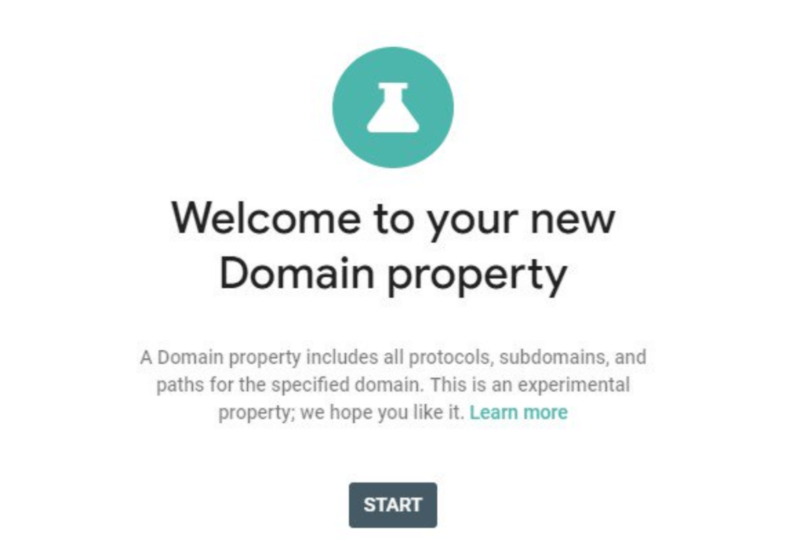Google Search Console experiments with domain properties
As Google looks to migrate more features from the old Google Search Console to the new one, Google is rethinking how properties should be organized.
Google is testing a new feature in Google Search Console to at least partially replace the old property sets feature with a new “domain properties” feature.
Tristram de Silva has access to this new beta feature and shared the screen shot above. In its help document about this feature, Google said that “Search Console is experimenting with a new type of web property that includes all protocol and subdomain variations for a given domain.” Google is calling this type of new property a “Domain property.”
What is a domain property? Google defines a domain property as “a bare domain or subdomain fragment, without any protocol or path. Data for all subdomains, protocols, and subpaths are aggregated for this property,” Google explained.
Google added, “For example, if you define a Domain property as ‘example.com’, it includes example.com, any subdomains of example.com (for example, m.example.com, support.m.example.com, www.example.com, and so on), as well as any subpaths in any of those domains, on both http and https.”
How can I see this feature? This feature is not available to all users of Google Search Console. Google said this is an experimental feature and is by invitation only. There is currently no way to ask to be invited into this experiment.
How do these domain properties get created? Google currently creates them for you. Google said, “At present you cannot create a new Domain property. If you have been invited to participate in a limited test, you will have a domain created for you.” It seems after it is fully released, Google will give webmasters a way to create their own.
Why can’t I see all the reports? Not all of the reports within Google Search Console currently work with domain properties. Google said “Some reports, tools, and settings are unavailable to a property with a Domain property.” Plus, domain properties are available only in the new Search Console, not the old version. The older version still does support the old property sets feature.
I want to opt out. If you have this feature and hate it for some reason, Google does let you opt out. You can opt out by going to this form.
More FAQs. Here are some of the other FAQs Google listed around this new experimental feature:
Q: Can I split the data in this property into its component sources (http, https, and so on)?
A: No; the data you see is combined and cannot be split apart, except by individual URL in appropriate reports.
Q: Can I create another Search Console property for a domain that is part of a Domain property?
A: Yes. If you have a Domain property example.com, you can create a separate property for www.example.com if you want to see that data separately. The example.com Domain property will not be affected.
Q: Why can’t I see any Domain properties in my account?
A: Domain properties is currently in a limited test; if you have been invited to participate, you will be notified and a property will be created for your account.
Why it matters? Google Search Console requires you to verify every domain property and then gives you data, analytics and notifications about each individual property. So the www versus non-www, the http versus the https, the m-dot versus the non m-dot – all technically have their own data, analytics and notifications. This feature will combine these into a single aggregated look and give you a more holistic picture of how your site is performing in Google.
Google property sets has done this in the old version of the Google Search Console, but Google is looking to make it even smarter in the new version of the Google Search Console.
Related stories
New on Search Engine Land
